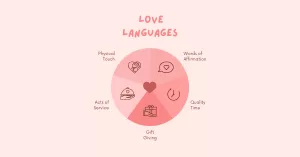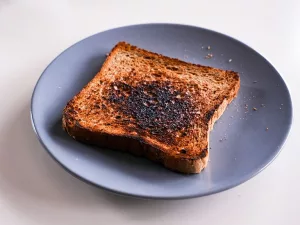Working out the mind to sharpen memory, attention, or everyday functioning is a priority for many older adults — though people of every age can gain from adding a few straightforward brain workouts to their routine.
The brain is involved in virtually all we do, and like other parts of the body, it benefits from regular care and stimulation.
Studies indicate there are numerous strategies to enhance mental acuity and support brain health across the lifespan.
Certain cognitive activities can strengthen memory, heighten concentration, and boost focus, which can make daily tasks faster and easier while helping the mind stay sharp with age.
Here are 13 evidence-based exercises that deliver some of the best brain-enhancing effects.

1. Enjoy a jigsaw puzzle
Whether you’re assembling a 1,000-piece panorama of Paris or fitting together 100 tiles to form a cartoon character, tackling a jigsaw puzzle is an excellent way to exercise your mind.
Research has shown that jigsaw puzzling engages multiple cognitive processes and can act as a protective factor for visuospatial cognitive aging.
In practical terms, piecing together a puzzle requires examining many fragments and determining how each fits into the overall picture — an effective mental challenge.
2. Play card games
A 2023 study found that playing card games improved executive skills like self-regulation and task-switching in children with social difficulties. Even games not explicitly designed to train cognition produced positive effects.
Card play can also aid older adults. Other research showed that modern card games helped seniors enhance certain cognitive domains, such as verbal fluency and inhibitory control, suggesting card games can be both enjoyable and supportive of brain health in later life.
Try learning or revisiting these classic card games:
- solitaire
- bridge
- gin rummy
- poker
- hearts
- crazy eights
3. Expand your vocabulary
A broad vocabulary not only makes you sound knowledgeable but can double as a quick mental workout.
Research reveals that vocabulary tasks activate many brain regions, especially those tied to visual and auditory processing. Try this simple cognitive exercise:
- Carry a small notebook when you read.
- Jot down an unfamiliar word and look up its meaning.
- Make an effort to use that word at least five times the following day.
4. Dance regularly
Studies note that learning new dance steps can speed up brain processing and bolster memory. So get moving — your brain will benefit.
Try one of these dance-related activities:
- Join a salsa, tap, hip-hop, or contemporary dance class.
- Take a Zumba or jazz fitness session.
- Follow online dance tutorials to learn fun moves.
- Partner up to learn ballroom styles.
- Organize a line-dancing night with friends.
5. Engage all your senses
Recent work suggests that activities engaging all five senses can help strengthen the brain, particularly in older adults.
To give your senses and mind a workout, pick activities that stimulate smell, touch, taste, sight, and hearing simultaneously.
Examples include baking cookies, strolling through a farmer’s market, or trying a new restaurant while intentionally noticing aromas, textures, flavors, visuals, and sounds.
6. Pick up a new skill
Learning something new is enjoyable and can also fortify neural connections.
A 2023 study found that older adults who learned several new skills at once — such as a foreign language, drawing, and music — improved memory and thinking abilities.
Within weeks, their cognitive performance reached levels comparable to those of middle-aged adults, showing it’s never too late to enhance brain power through real-world learning.
Is there an ability you’ve wanted to master? Maybe car repair, a specific software, or horseback riding — now you have an extra incentive to learn it.
7. Teach what you learn
One of the most effective ways to deepen learning is to teach a skill to another person.
After you acquire a new ability, practising it and instructing someone else forces you to explain steps and correct errors. For example, learn to swing a golf club, then teach those steps to a friend.
8. Listen to or make music
Want an easy way to boost creative cognition? Music could be the key.
2024 research found that music-based activities — singing in groups, playing simple instruments like hand drums, or dancing to familiar tunes — can help maintain or improve cognitive skills such as memory, verbal fluency, and overall mental functioning in older adults with early cognitive decline.
The findings support using music as a fun, complementary tool alongside traditional treatments to keep the mind engaged.
And if you’ve ever wanted to learn an instrument, it’s a great time to start — the brain remains capable of learning new skills throughout life.
9. Change your route
Avoid autopilot when going about daily tasks. Try different approaches to familiar routines.
Take an alternate route to work, or switch modes of transportation — bike, bus, or train instead of driving.
Your brain benefits from this small change, and you may find it surprisingly easy to shift your thinking.
10. Practice meditation
Regular meditation calms the body, slows breathing, and reduces stress and anxiety.
It may also help refine memory and boost attention. Find a quiet spot, close your eyes, and spend five minutes meditating daily.
11. Study a foreign language
Learning a new language demands substantial mental effort and helps keep the mind sharp as you age. For example, 2023 research found that language learning can enhance memory and cognitive flexibility in older adults.
Although other pursuits like musical training also boost cognition, language study offers a distinct advantage in improving cognitive adaptability over time.
These findings suggest it’s never too late to start learning a language and enjoy benefits for memory and other mental functions.
12. Try tai chi
Tai chi is well known for physical and mental health benefits and can help restore balance when life feels off-kilter.
Research found that a specialized form of tai chi combining mental exercises with movement helped older adults with mild memory complaints improve cognitive skills and gait.
This approach outperformed regular tai chi or simple stretching, with benefits lasting up to 48 weeks.
Beginners do best in a class to learn the movements, but once comfortable, tai chi can be practised anywhere.
13. Focus on another person
During your next conversation, deliberately note four details about the other person. Maybe note the color of their shirt, whether they wear glasses, the type of hat (if any), and their hair color.
Later in the day, recall those four things and write down what you remember about them.
The bottom line
Prioritizing brain health is one of the most effective ways to improve attention, focus, memory, and mental agility at any age.
By weaving cognitive exercises into daily life, you’ll challenge your mind, sharpen cognitive skills, and perhaps discover something new and rewarding along the way.
























Leave a Reply
You must be logged in to post a comment.